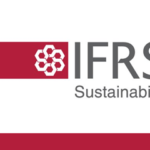The recently formed International Sustainability Standards Board (ISSB), created under the IFRS Foundation, has published its sustainability reporting standard focused specifically on climate-related risks and opportunities.
Introduction
The IFRS S2 Climate-related Disclosures standard is a pivotal development in global sustainability reporting. It creates a baseline for companies to disclose vital climate-related financial information for investors and stakeholders. As the world grapples with climate change, regulators, governments, and investors are seeking transparency on climate risks and business resilience.
Key Aspects of IFRS S2
IFRS S2 sets out disclosure requirements in four core areas:
- Governance: Disclosing the governance and oversight of climate-related risks and opportunities, including board and management responsibilities.
- Strategy: Explaining the impact of climate-related risks and opportunities on strategy, business model, and finances.
- Risk Management: Describing the processes used to identify, assess, and manage climate-related risks.
- Metrics & Targets: Disclosing key metrics related to climate risks, opportunities, and performance.
Limitations and Shortcomings of IFRS S2
While providing a solid foundation, IFRS S2 has some limitations:
- Narrow financial focus
- Flexibility allowing inconsistencies
- Lack of verification guidance
- Light on climate agreements
- Challenging data requirements
Conclusion
The release of IFRS S2 Climate-related Disclosures constitutes significant progress towards consistent sustainability reporting, establishing a global baseline for climate-related financial disclosures. However, S2 represents just the initial building block in the ISSB’s work to develop a comprehensive global sustainability reporting framework. It aims to strike a balance between prescribing consistent disclosure requirements and allowing principles-based flexibility.










